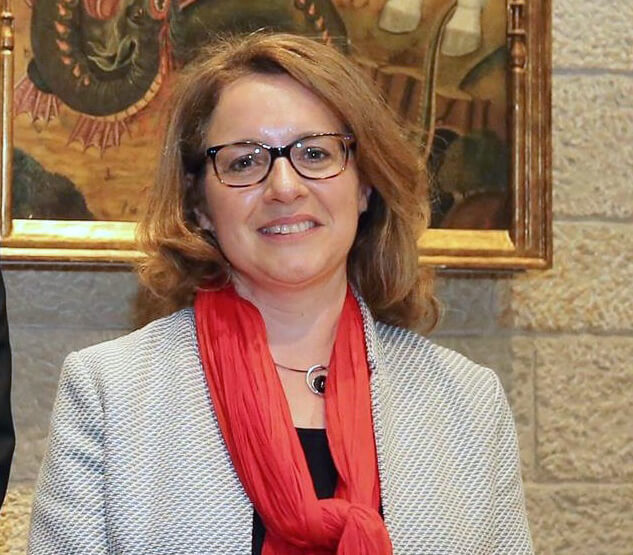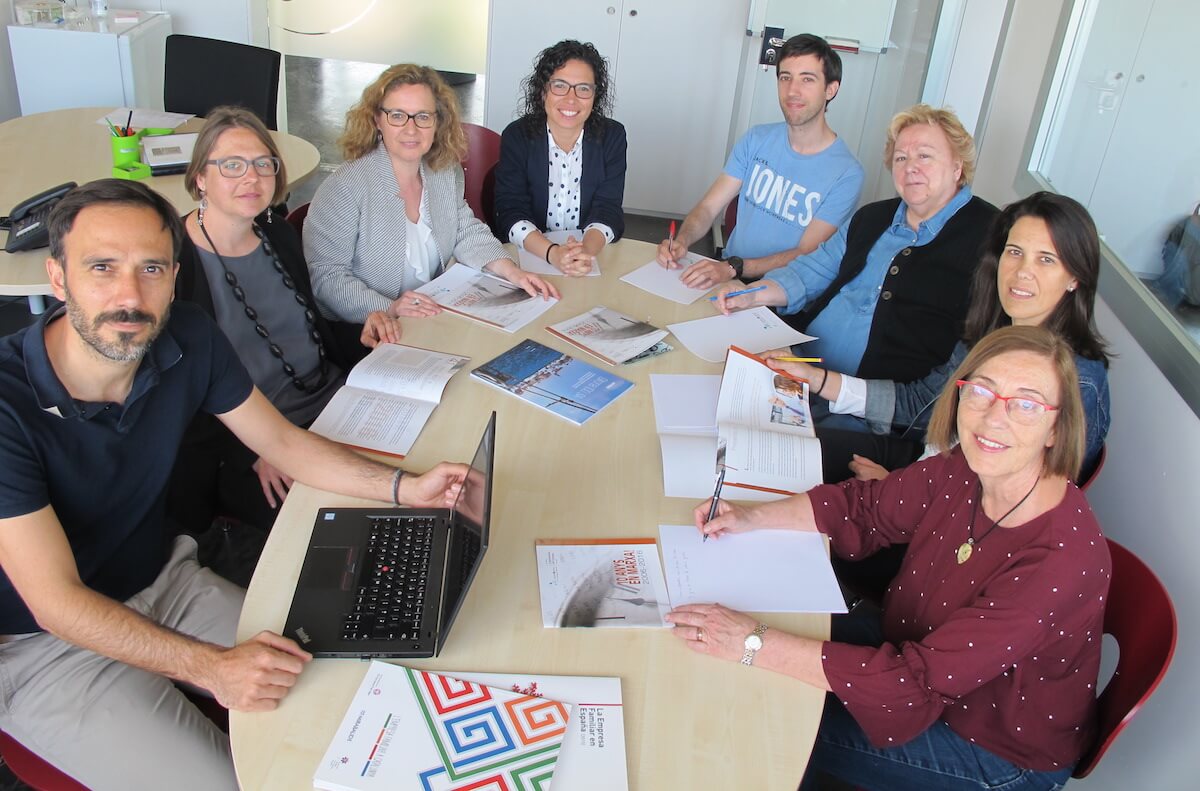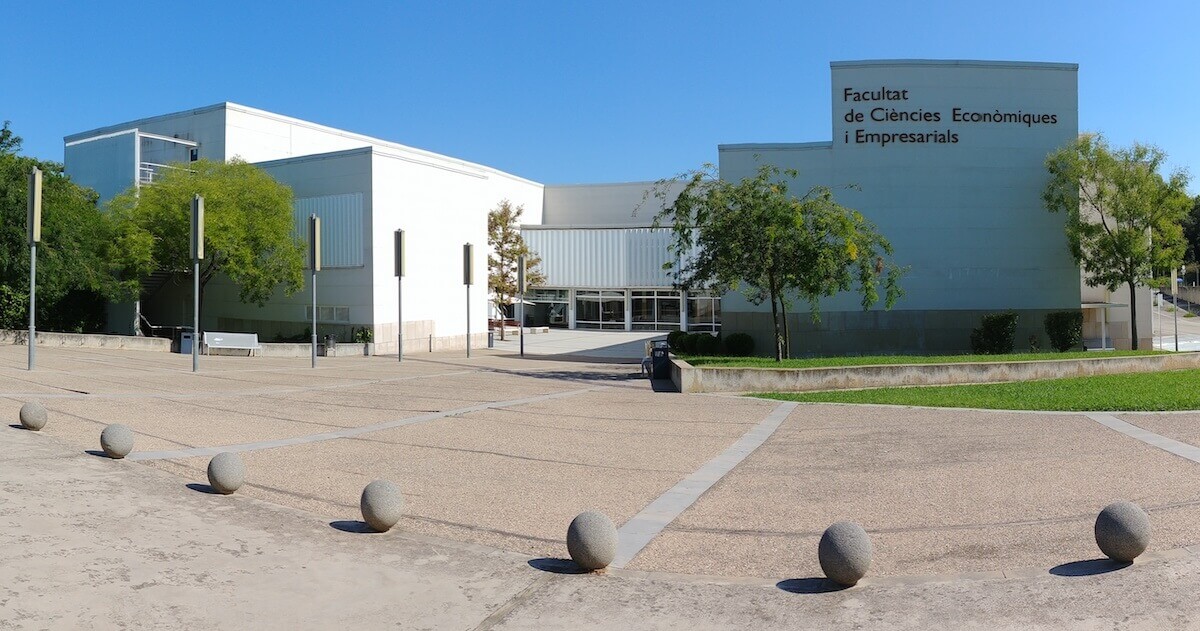Interview with Dr. Pilar Marques, Chamber of Commerce Chair of Family Business, University of Girona, Spain
The Spanish academic community has long been a forerider in advocating the importance of the family business research field. One of these fervent advocates is Dr. Pilar Marques Gou who is an associate professor at the University of Girona where she currently serves as the director of the Chamber of Commerce Chair of Family Business. Since 2014, she’s also served as Director of the Masters in Entrepreneurship and Business Development at the University.
In her role as Family Business Chair, Marques’ research is focussed on family business issues such as corporate social responsibility and innovation. Her research has been published in international journals, such as the Family Business Review, Forecasting Technological and Social Change, and European Journal of International Management.
Launched in 2006, the extensive study conducted by the Chair of Family Business has been integral to positioning itself in Spain and Europe as a leader in the academic study and research in the family business field.
Tharawat Magazine had the opportunity to speak with Dr. Marques Gou about the Chairs beginnings, the state of family business in Europe and around the world as well as what the future has in store for the Chair in Family Business in Girona.
How did you get started on family business research at the university and how did you determine your initial research focus?
When we started the centre 12 years ago, we began our research along the lines of our existing expertise in finance, innovation, and entrepreneurship and then narrowed the focus on strategic problems that are especially prevalent in family businesses. We have studied international and local trends equally. Our process has always been informed by the family businesses from Girona with whom we’ve built a relationship and who are key to our research. Quite often we’ll use these businesses as case studies or as part of pilot projects.
Also, about ten years ago, we started an initiative with KPMG which is called the Girona 100. This is an index of the 100 largest companies in the province of Girona, tracking what they’ve been doing every year. In essence, we are measuring the economic and financial situation of these 100 companies. What’s noteworthy is most of them are family businesses. It usually works out to around 80%. Our findings are not only relevant to the business and the media but also the politicians. We are telling the policymakers what is happening now, and can compare to what was happening before, so they have they can take it into consideration going forward.

Have you garnered any insights as to what are the commonalities of the successful companies within that sample?
First of all, the last twelve years since the establishment saw a very important crisis occur in the sector. It was not exactly “business-as-usual”. I would say that family businesses had to focus very much on the business side of things to ensure survival. This means that the focus was laid on creating discipline in the business as well as within the families. Many had to reorganise, sometimes even downsize the businesses and this had significant implications for the family.
Often this meant a refocus on productivity on professionalising it even more than what they had previously because they had to measure productivity. They had to measure every business operation on whether or not it was effective. Size was no longer as important. It was more important to have a profitable and efficient operations than having a large company. The businesses and families that didn’t do this well disappeared. And this leads to difficult discussions and decisions as to who should be involved in the business and in what capacity. Who should be at the executive level and who should be a shareholder with no involvement in the direction or management of the business.
[ms-protect-content id=”4069,4129″]
How do you explain this pioneering spirit of the Spanish academic community when it comes to the family business field?
The answer is quite easy, but I can’t take the credit. Here in Spain, there is a very important association of large family businesses based in Madrid which is called The Family Business Institute. This is comprised of more than 100 very large family businesses in Spain, many of which are multinational companies. The institute has been working on studying family business concerns, making policy recommendations, improving family business training all to increase the chances of survival and improve the chances of success of the families. But they also realised the need to improve the field of research and training in family businesses. They believed the best way to do this was to use the network of Spanish universities to empower research and training at a decentralised level. They promoted family business chairs like the one we have here in Girona. They have been working on this for 25 years and there are currently 37 Chairs of Family Business in Spain.
Every family business chair has one Professor or team working with it. We have a large number of academics dedicated to both training and research in Spain. Estimates say around 200. The building of this network has been very powerful because there are meetings at least twice a year, sometimes more where they exchange ideas, receive some training, and, collaborate on family business issues. This initiative has produced two studies at the national level and regional level. It has produced some interesting outcomes and has increased the level of collaboration and awareness. The effect has been an increased incentive to collaborate because we’re sharing information and working with colleagues. In Spain, the incentives for conducting good research have increased and I believe that is why you see the family business field moving fast here.
Looking at this from a global perspective, what are the things that you wish family business field would address in the future?
This is a very difficult question. I think it’s a little bit dangerous trying to make sweeping generalisations. I understand the temptation when it comes to solving particular problems or addressing particular challenges of family businesses. But it’s tricky because every family and every business is such a complex system. This means that probably generic recipes are not helpful.

I would say the cultural issues and values discussion need to be taken in the context of region and country. The cultural assumptions and the value assumptions, even the concept of family that we may have in Spain is probably very different from that in the US for instance. I would guess Nordic countries have a concept of family that is different from countries in the South. This is something that makes a difference in the creation of the business, in the founder stage, and then it makes a difference in how entrepreneurship affects the evolution of the family. And so perhaps this is an area where we could be doing better. When we conduct research, sometimes we have to explore whether what we are doing is helpful for other family businesses outside our own borders.
What are your future plans for your family business chair?
I think that we will continue with mainly three lines of research: One of them will continue to be innovation. We like the topic of innovation because it is a challenge for us. This is also very much related to entrepreneurship. The second line is something we have been working for a while and it is the survival ability of family firms. This is a topic we care about because we still recall what has happened during crisis when so many businesses didn’t make it. It makes sense to measure how companies have adapted and how they operate after the crisis which is theoretically finished. And then, thirdly, there was another topic which is the exploration of companies which have been able to endure and sustain the business over time and generations. We call this the Centennial Research. We are investing money and resources and we want to focus on this by working directly with families. We haven’t worked directly in the field for some years. We’ve been carrying a research mostly on secondary data, so we want to be back on the front lines talking with families.
Have you noticed an increased interest from the next generation and the students in the family business field?
I would say every year we have a direct impact on about 100 students through our efforts at the University. The students are most often involved with family business and they graduate at the master level. I think they become aware and they become more positive about family business. Sometimes before this immersive study, their perception of family businesses can be that they are informal or not professional in how they operate. I think we open their minds and allow them to discover for themselves that family businesses are very important. They understand we cannot neglect them and realise that they one day will likely end up working for or joining their own family business.
[/ms-protect-content]














